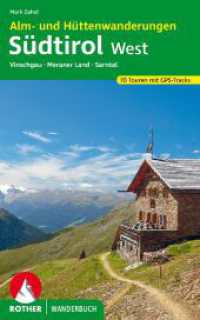Full Description
This book constitutes a holistic study of sociolinguistic development among adult second language (L2) learners in a naturalistic setting. Combining results from a cross-sectional and longitudinal micro-development study, it examines the acquisition of both the productive and interpretive skills necessary to engage with the contextually sensitive use of vernacularity in Austria. The studies focus on issues of inter- and intra-individual variation and aim to shed much-needed light on why L2 learners acquire sociolinguistic variation, which aspects of it they acquire, which factors influence it and when they acquire it. Drawing on methodological and theoretical frameworks from diverse fields such as developmental and cognitive psychology, psycho- and sociolinguistics, as well as second language acquisition, the book connects topics rarely found in the same empirical piece, including the role of cognitive functioning and socioaffective factors, the temporal specificity of L2 sociolinguistic development in production and perception, and the issue of group-to-individual generalizability. The studies showcased in this work provide ample evidence that late starters of a L2 in early adulthood and midlife can acquire the skills necessary to successfully navigate the complex sociolinguistic variation within the target-language community, but the process is certainly not one without hurdles.
Contents
Acknowledgments
Chapter 1. The Big Picture
Chapter 2. Mapping the Terrain
Chapter 3. The Current Empirical Study
Chapter 4. Unpacking the INTER and INDIVIDUAL in L2 Sociolinguistic Development
Chapter 5. The Systematicity of Outcomes in L2 Sociolinguistic Development
Chapter 6. Signature Dynamics of L2 Sociolinguistic Micro-Development
Chapter 7. Reconciling the INTER and INTRA in Variationist SLA
Chapter 8. Conclusion and Future Perspectives
References
Index








